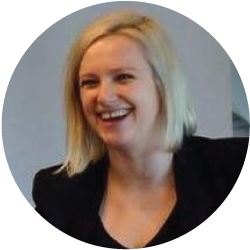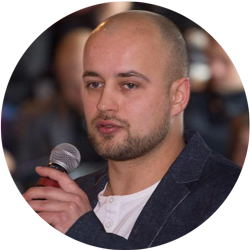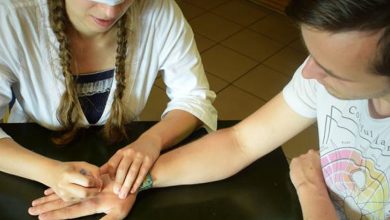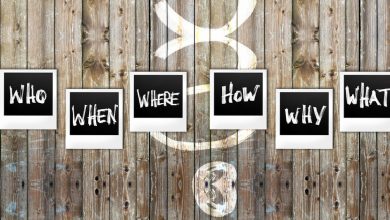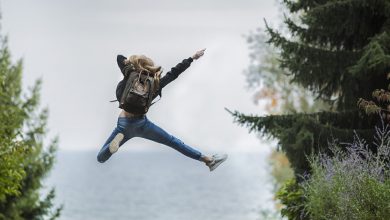Non-formal education principles
This tool involves reading on main principles of non-formal learning and links to broader theories.
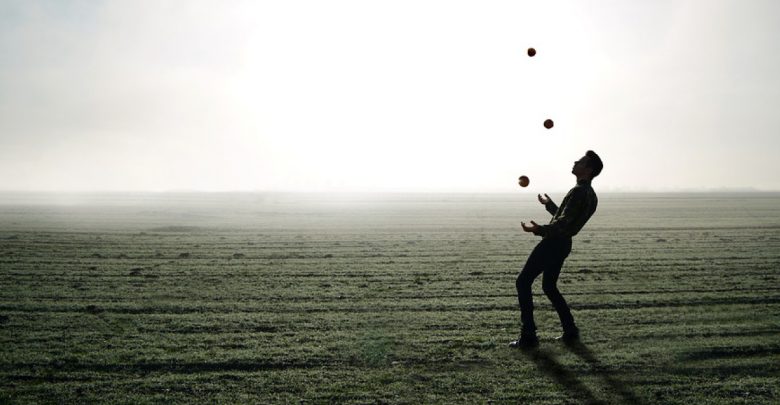
Why did I choose this tool? This is an introductory tool to non-formal education principles, which helps to put into perspective supporting the learner, choosing the “correct” educational approach and creating a learning environment. I use the introduction to NFE principles at the beginning of a training program so the participants can better comprehend what is going to happen and why. For me the aim of this tool is to break the stereotype that non-formal education is a set of active methods and it’s more fun than formal education. It is more fun, but it has a much stronger philosophy behind it than it is often discussed, especially in the learning mobility projects.
How does this apply to being a trainer? As most of the training courses in the youth field are based on the principles of non-formal education, the first step when you start to work is learning about these principles and the theories behind them. It helps you to wisely construct the program, reflect it, and understand your role as a trainer and the role of the participants in the process.
Main content:
Voluntary participation. “The educated are free to choose a preferred conveyor and programme of education, participate in activity based on their free will and choose the type of non-formal educative activity, its form and duration” (Gailius et al. 2013, 28). This is the main aspect that distinguishes non-formal education from formal education, which is compulsory until a certain age.
Specific environment. “Non-formal education takes place in a specific environment, which has to have certain autonomy (separateness), so that people are safe to experiment and test themselves without any greater chance of harming themselves or others. It should also be an environment where people can take full responsibility for their actions. Even failure or an unjust decision can have negative consequences which could influence the rest of a young person’s life. It means that young people have to have a possibility to test themselves. Testing yourself enables you to collect more authentic experiences which is crucially important at this age” (Gailius et al. 2013, 28). As you may notice, this is about how a safe and specific environment is important for young people to test themselves, but I would say that it is not less important to the adults as well, since in many societies making mistakes and experimenting is not something that is encouraged or goes without negative consequences. Non-formal education process and safe environment created by the trainers and facilitators gives a chance to not only develop professional competencies, but also work on personal development and taking responsibility.
Active participation in the learning process. “People who take part in non-formal education reach certain results firstly through active participation. Activeness is achieved by devoting time to name and perceive one’s personal experience. If necessary, it can be achieved by creating artificial situations to acquire new experience and by providing theoretical material for active discussion, creating conditions to question and think of possibilities of application” (Gailius et al. 2013, 28).
Holistic principle. “This principle means adopting a holistic attitude towards people, educative goals and work methods. Neither feelings, nor mind, nor physiology are ignored and attention is paid to a single person, as well as to the group and the subject. The goal is to relate experience gained during the educative process to reality. Non-formal education combines emotional, physical, intellectual methods that ensure all-round development of a personality. We practice NFE and believe that a person becomes free from external circumstances, strong inside, self-confident and self-sufficient (“the lord of his own will and a slave of his own conscience”, to say it in words of our Teacher A. Kučikas), only after he has realized his unity” (Gailius et al. 2013, 28). Read more about holistic education in the article by Ron Miller “A brief introduction to holistic education” http://infed.org/mobi/a-brief-introduction-to-holistic-education/
Learning through experience. Learning through experience is key. “The process of non-formal education is based on experience, which only becomes meaningful when it is well perceived and consciously realized. Therefore experience is discussed (reflected on) and named, conclusions are made, given sense and applied in real life” (Gailius et al. 2013, 28-29). Experiential learning theory was established by Kolb and Kolb and is a broadly used theory. You can read more about it here http://citeseerx.ist.psu.edu/viewdoc/download?doi=10.1.1.187.3499&rep=rep1&type=pdf
Open and non-formal communication. “Non-formal education is a safe process, where people can be themselves by sharing their life experience, revealing their weak sides without fear of making mistakes and acknowledging them. It is also a space for learning from one’s mistakes and learning from each other, for the mutual growth of both educator and the learner” (Gailius et al. 2013, 29).
Creating a non-competitive environment. “The activity of non-formal education is an area where artificial competitive tension is highly avoided. Competition is what drives the contemporary society. Results (implementing a plan or a task) are a constant demand. Young people are often required to do more than they are capable of, or encouraged to be seen as something they are not. When do they get a chance to just be themselves? In order to meet the expectations of society (or adults) most young people learn to adapt and survive this way. However at the same time they may hate this society yet, sadly, they neither have strength, nor wish to change it. Therefore non-formal education refuses artificial competition and formal control of results. The experience of process is considered valuable in itself and can be treated as a result. This principle allows creating a space where participants are not compared to each other, but rather they can assess themselves and how far they have come in their desired way. Here the only comparison that can occur is the one where people compare themselves to themselves – how was I at the start of the educative process and how am I now at the end of the educative process? This process of internal maturity cannot be evaluated in a formal way, because the results may not be visible straight away, but only after a certain amount of time has passed. (This amount of time is highly individual). Therefore we often speak about the results of NFE as well as the effects of NFE” (Gailius et al. 2013, 29).
Group oriented learning. “A group in non-formal education serves as a means, as a particular model of society (mini society). A group serves as a setting for solving interpersonal relations, making common decisions, sharing work and responsibilities. Individual learning also intensifies in a group. The need for individual learning programs in Western European countries rapidly increases. So far there has been very little discussion on this topic, and if there was, it was only about young people’s learning in voluntary service. We often speak about education of volunteers, or work with volunteers. We agree that the task is long and requires consistency. Therefore in our opinion, organizations that, as usual, want to ‘harness’ young people but fail to devote resources and funds for work with their volunteers, engage in something, which is definitely not youth non-formal education. Those organizations that do engage in educating volunteers know how much effort, time and money this work requires. Apart from the individual learning, volunteer groups, group activities, seminars and meetings are being organized for working with volunteers. Spaces are being established, where groups of volunteers can reflect on their experience, learn from one another, solve difficult situations, assess personal growth and realize acquired competences” (Gailius et al. 2013, 29). For more extended description read the theory of B. Tuckman or the tools for the competency of dealing with the group processes. A scientific article by B. Tuckman and M. Jensen: http://faculty.wiu.edu/P-Schlag/articles/Stages_of_Small_Group_Development.pdf
Reflection questions:
- Which principle you think is the most important in trainers’ work? Why?
- Which one is the most questionnable, unrealistic?
- What happens if the principles are not followed?
Exercises:
How to apply it in everyday life:
- Come up with a strategy how to include the presentation of principles of NFE into the educational programme you are running;
- Go through an already developed training programme and critically evaluate it based on NFE principles, find which principles are reflected in the programme the most, which ones are easiest to follow and which ones make it a little bit more difficult.
